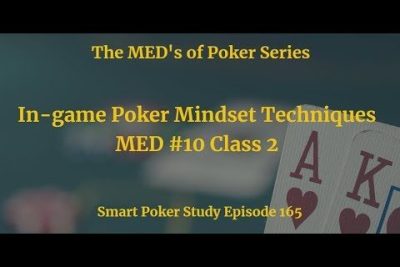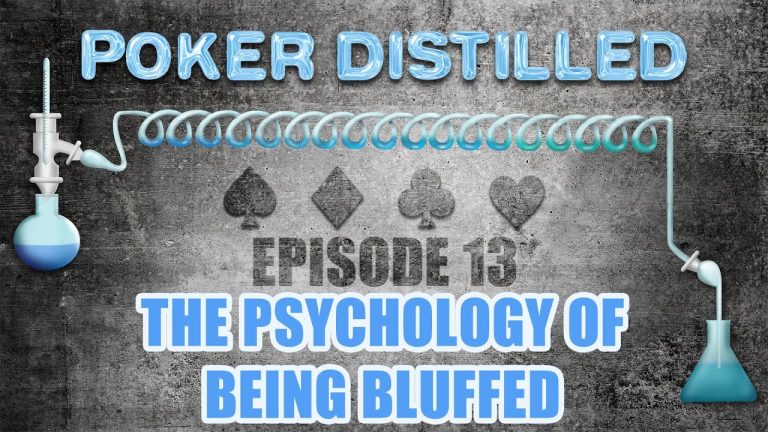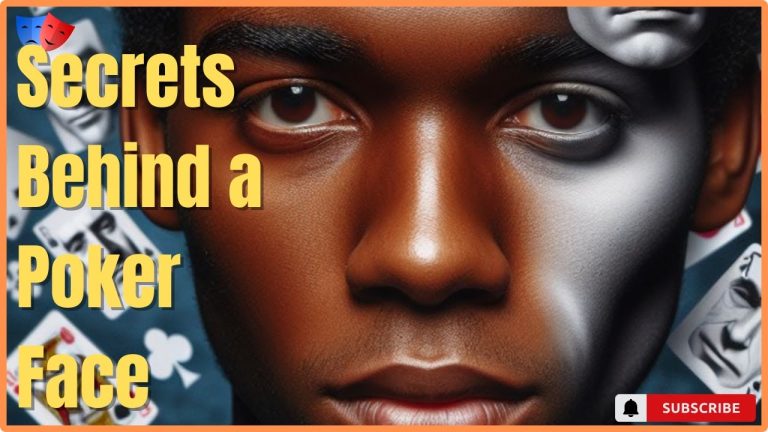In the exhilarating and strategic world of poker, success often lies in the ability to read opponents and make calculated decisions. From subtle twitches to unconscious gestures, the art of spotting outs and harnessing the power of observation can be the key to unlocking triumph at the poker table. In this article, we delve into the intriguing realm of poker psychology, exploring how keen observation skills can elevate your game and give you a winning edge. Get ready to uncover the secrets behind deciphering opponents’ intentions and mastering the art of the poker face.
What does observation entail?
Observation holds immense power in unraveling the mysteries of the world and expanding our knowledge. By keenly observing our surroundings, we become privy to the intricacies that often go unnoticed by others. It is this acute attention to detail that allows us to discover hidden truths and complexities that lie beneath the surface. From the subtlest facial expressions to the tiniest gestures, observation enables us to perceive and comprehend the world in a profound manner.
Moreover, the power of observation extends beyond personal enrichment. It plays a vital role in our interactions with others, enabling us to respond in an appropriate and empathetic manner. When we observe attentively, we gain insights into the needs, emotions, and intentions of those around us. This heightened awareness fosters understanding and empathy, allowing us to forge deeper connections and navigate social situations with grace and sensitivity.
In essence, observation is a gateway to a wealth of knowledge and understanding. It empowers us to delve into the intricacies of the world, uncover hidden truths, and connect with others on a deeper level. By honing our powers of observation, we open ourselves up to a world of possibilities, enriching both our personal growth and our interactions with others.
What advantages does one gain from having observation skills?
Developing strong observation skills can have a profound impact on various aspects of our lives. Not only does it enable us to perceive and understand the world around us in more detail, but it also enhances our decision-making abilities. By honing our observation skills, we become more adept at picking up on subtle cues and signals, allowing us to “listen” beyond what is being said verbally. This newfound ability enables us to make more informed judgments and choices, leading to better outcomes in both personal and professional settings. Furthermore, improving our observation skills enhances our interpersonal interactions, as we become more attuned to the emotions and needs of others. This heightened awareness allows us to respond in a more appropriate and empathetic manner, fostering stronger connections and relationships. Ultimately, investing in the development of our observation skills is a valuable asset that can positively impact our overall well-being and success.
What specific categories can observations be classified into?
Observation is a powerful tool used to gather information and gain insights. There are four main types of observation: naturalistic, participant, structured, and controlled. Naturalistic observation involves observing individuals in their natural environment without interfering or manipulating the situation. Participant observation requires the observer to become part of the group being studied, giving them a firsthand perspective. Structured observation involves setting up a specific scenario or situation to observe how individuals respond. Lastly, controlled observation is conducted in a controlled environment, allowing for precise control over variables. These four types of observation provide researchers with diverse approaches to studying human behavior and the world around us.
Each type of observation has its own advantages and limitations. Naturalistic observation allows researchers to capture authentic behaviors in real-life settings, providing rich and realistic data. Participant observation, on the other hand, enables researchers to gain an in-depth understanding of the group being studied by immersing themselves in their culture and activities. Structured observation allows for the manipulation of variables and the control of factors that may influence behavior. Controlled observation, with its controlled environment, allows researchers to isolate specific variables and study them in a systematic and controlled manner.
By utilizing these four types of observation, researchers can gain a comprehensive understanding of various phenomena from different angles. Whether it is studying animal behavior in their natural habitats or observing human interaction in a controlled setting, observation plays a fundamental role in advancing our knowledge and uncovering the intricacies of the world we live in.
Mastering Poker’s Hidden Language: The Art of Observing Your Opponents
Paragraph 1:
Welcome to the world of poker, where the cards are just the beginning. Mastering Poker’s Hidden Language is a journey into the art of observing your opponents. As the chips stack up and tension fills the air, the true game unfolds in the subtle nuances of body language, facial expressions, and even the smallest of gestures. This captivating language, often overlooked, holds the key to unlocking your opponents’ strategies, weaknesses, and tells. From a slight twitch of the eyebrow to a barely noticeable shift in posture, every move tells a story. Sharpen your observation skills and become fluent in this hidden language to gain the upper hand at the poker table.
Paragraph 2:
In the game of poker, winning is not only about the cards you hold but also about the ability to decipher the hidden language of your opponents. The Art of Observing Your Opponents is a skill that separates the amateurs from the masters. It is a dance of perception and intuition, where your keen eye and careful analysis can reveal the true intentions of those sitting across the table. By paying attention to every detail, from the way they hold their chips to the speed of their breathing, you can uncover their hidden strengths and weaknesses. So, step into the world of poker’s hidden language and discover the power of observation that will elevate your game to new heights.
Cracking the Code: How Observation Transforms Your Poker Game
Paragraph 1:
Observation is the key to unlocking success in the game of poker. By keenly observing your opponents’ actions, body language, and betting patterns, you can gain valuable insights into their strategies and intentions. This information allows you to make calculated decisions and adjust your own gameplay accordingly. Whether it’s detecting a bluff or identifying a player’s nervous ticks, observation transforms your poker game into a strategic battle of wits where every move counts.
Paragraph 2:
The power of observation lies not only in understanding your opponents but also in analyzing the game itself. By observing the dynamics at the table, such as the flow of chips, the betting trends, and the overall mood, you can gain a deeper understanding of the game’s current state. This awareness enables you to adapt your strategy, exploit weaknesses, and capitalize on opportunities. In poker, observation is like having an extra set of eyes that guide you towards making the most profitable decisions.
Paragraph 3:
To truly crack the code of poker, observation must be paired with intuition. By carefully observing the patterns and behaviors of your opponents, you can develop a sense of their playing style and tendencies. This intuition allows you to make informed guesses and take calculated risks, giving you a significant advantage at the poker table. When observation and intuition come together, you become a master of the game, able to decipher the hidden codes and make winning moves with ease. So, sharpen your observation skills and unlock the secrets that will transform your poker game forever.
Unleashing Your Inner Sherlock: The Key to Poker Success
Unleashing Your Inner Sherlock: The Key to Poker Success
In the game of poker, the ability to read your opponents is crucial. Just like Sherlock Holmes, you must become a master of observation and deduction. By honing your detective skills, you can uncover subtle tells and hidden patterns that can give you the upper hand at the table. Pay attention to body language, facial expressions, and betting patterns to gain valuable insights into your opponents’ strategies. Unleash your inner Sherlock and watch as your poker success reaches new heights.
But it’s not just about reading others; it’s also about understanding yourself. Sherlock Holmes always knew his own strengths and weaknesses, and so should you. Take the time to analyze your playing style and identify areas for improvement. Are you too predictable? Do you get easily flustered by aggressive players? By self-reflecting and making necessary adjustments, you can enhance your poker game and outsmart your opponents.
Lastly, remember that Sherlock Holmes never relied solely on instinct. He was a master of logic and reasoning. Apply the same principles to your poker strategy. Instead of relying on luck, use your analytical skills to make calculated decisions. Consider the odds, evaluate the potential outcomes, and make informed choices. By thinking like Sherlock, you can turn poker into a game of skill and strategy, increasing your chances of success.
Unleash your inner Sherlock and transform your poker game. Learn to read your opponents, understand yourself, and think analytically. By adopting these principles, you’ll be on your way to becoming a true poker master. So put on your detective hat and get ready to conquer the poker table.
Beyond the Cards: Unveiling the Secrets of Poker’s Observation Game
Beyond the Cards: Unveiling the Secrets of Poker’s Observation Game
In the high-stakes world of poker, where luck and skill intertwine, the true masters of the game understand that there is more to winning than simply holding the best hand. They have mastered the art of observation, using their keen senses to read their opponents like an open book. With a single glance, they can decipher the slightest twitch, the subtlest change in body language, and unravel the secrets hidden within their opponent’s poker face. Every movement, every gesture, is a clue waiting to be discovered, providing invaluable insight into their opponent’s thoughts and intentions. It is this refined ability to observe and analyze that sets the elite players apart, enabling them to outwit, outmaneuver, and ultimately triumph over their unsuspecting adversaries. So, the next time you sit down at the poker table, remember that the real game lies beyond the cards, in the art of observation.
In the exhilarating game of poker, the power of observation can be the key that unlocks the door to victory. By carefully studying the behaviors, expressions, and movements of opponents, players can uncover hidden insights that reveal their true intentions. Furthermore, the ability to calculate outs, with their potential to transform a losing hand into a winning one, adds an extra layer of strategic depth to the game. As skilled players master the art of observation and utilize their knowledge of outs, they gain a significant advantage that can ultimately lead them to triumph at the poker table.



